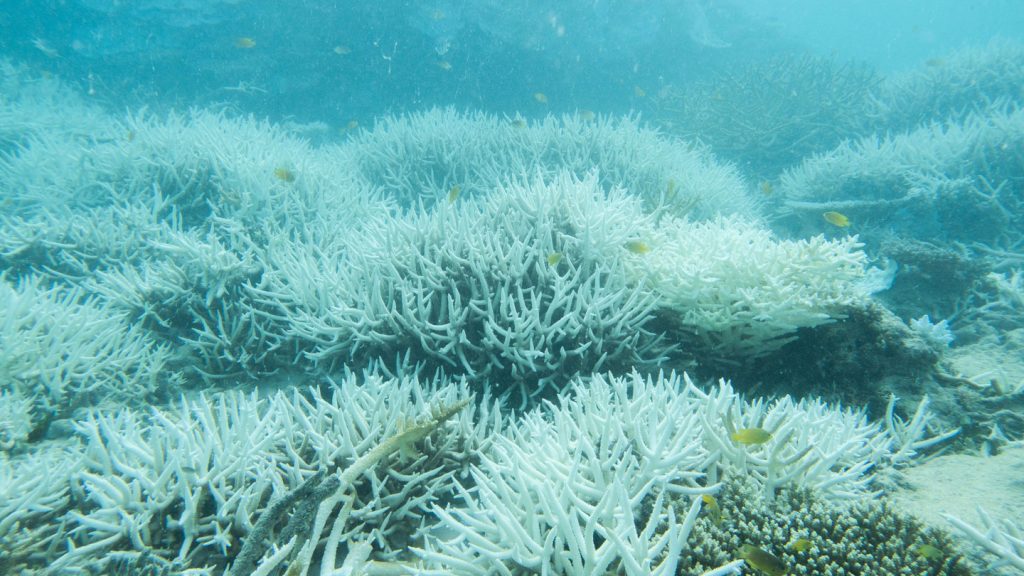Summarize this content to 2000 words in 6 paragraphs
Australia’s Great Barrier Reef faces critical danger from back-to-back bouts of extreme ocean heat.
Ocean heat in the Coral Sea is at its highest in four centuries, scientists report in the Aug. 8 Nature. The researchers drilled into coral skeletons from in and around the region and analyzed the chemical makeup of those samples to reconstruct sea surface temperatures from 1618 to 1995, alongside modern instrumental sea surface measurements spanning 1900 to 2024.
Before 1900, ocean temperatures in the region were relatively stable. But from 1960 to 2024, those temperatures have climbed relentlessly. That upward climb is linked to humans’ greenhouse gas emissions, the team found.
Five of the six hottest years in the record were in the last decade: 2016, 2017, 2020, 2022 and 2024, with temperatures as much as 1 degree Celsius hotter than average. Each year had a mass bleaching event during the warmest months, from January to March (SN: 4/29/24).
Scientists drilled into corals in the Great Barrier Reef (shown) to collect core samples. The chemical makeup of the corals reveals changing water conditions, including temperature, over the corals’ lifetime.Tane Sinclair-Taylor
Researchers have long sounded the alarm about mass bleaching, in which corals stressed by extreme heat or pollution expel symbiotic algae living in their tissues, leaving them stark white (SN: 8/9/23). Corals can bounce back, given time. But back-to-back bleaching can ultimately kill a reef.
“The Great Barrier Reef is iconic,” climate scientist Benjamin Henley of the University of Melbourne in Australia said at an Aug. 6 news conference. UNESCO designated the reef as a World Heritage Site in 1981.
Extreme Climate Survey
Science News is collecting reader questions about how to navigate our planet’s changing climate.
What do you want to know about extreme heat and how it can lead to extreme weather events?
The U.N. organization has considered adding the reef to its World Heritage in Danger list, noting mounting threats from rising ocean temperatures as well as pollution (SN: 4/7/20). In 2023, UNESCO held off, in part due to the Australian government’s pledge to improve safeguards.
But that was before these new findings, Henley said. “The sense that we could lose [it] in our lifetimes … I hope that spurs action.”
Global warming threatens up to 90 percent of global coral reefs, said Helen McGregor, a paleoclimatologist at Australia’s University of Wollongong. “The more [emissions] we cut now, the better off not just the Great Barrier Reef will be, but society is going to be. It’s the coral in the coal mine.”
Questions or comments on this article? E-mail us at feedback@sciencenews.org | Reprints FAQ
Carolyn Gramling is the earth & climate writer. She has bachelor’s degrees in geology and European history and a Ph.D. in marine geochemistry from MIT and the Woods Hole Oceanographic Institution.
We are at a critical time and supporting science journalism
is more important than ever. Science News and our
parent organization, the Society for Science, need your help to strengthen
scientific literacy and ensure that important societal decisions are made
with science in mind.
Please
subscribe to Science News and add $16 to expand
science literacy and understanding.


